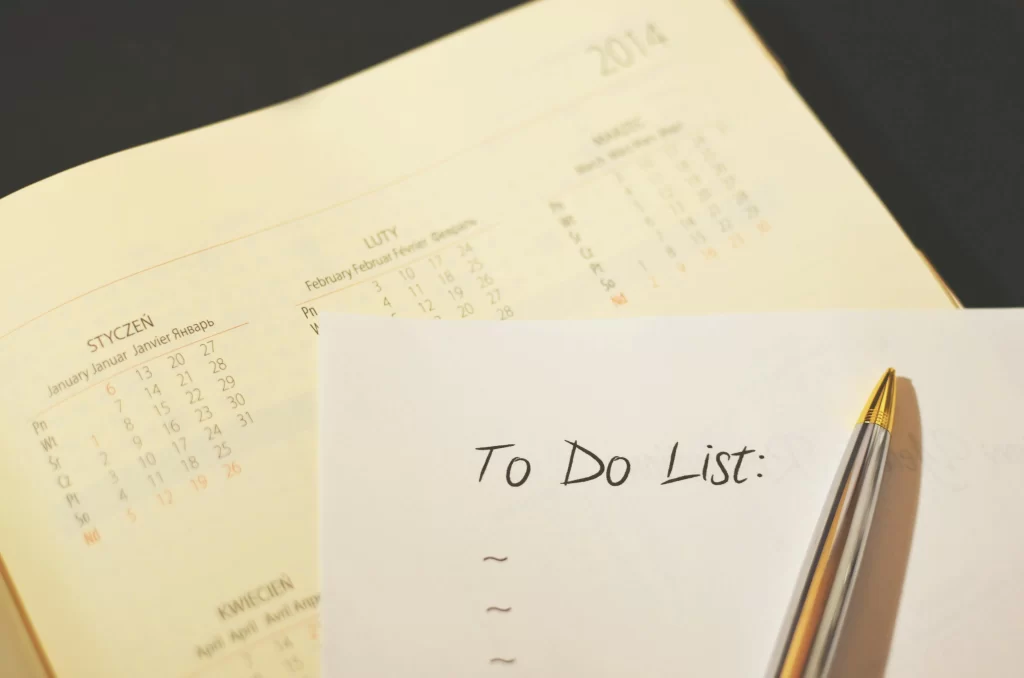Carpe Diem!!! Seize the Day.
Many of us kick off our days full of energy and big plans, only to wonder where all the hours went. It’s a common scenario, not just daily, but as we blink and suddenly find ourselves halfway through the year. If you’ve ever found yourself puzzled at how it’s already July and those New Year’s resolutions are still pending, you’re not alone. This article is for anyone who’s set goals—whether they’re monthly targets, financial ambitions, health objectives, or career aspirations—and finds themselves struggling to cross the finish line. Let’s explore how to turn that around and make goal achievement a reality.
Daily planning is a habit that helps you organize your day and is a first step to getting things done. It is like having a compass, which will help you navigate your everyday life. Whether you are a student, a stay-at-home mom, a freelancer, or a corporate employee, the habit of planning your day can save you a lot of time wasted.
I’ve had days when mere planning wasn’t helping. After trial and error and advice from productivity gurus, I’ve learned to plan the day in the way that works for me. Ever since I started planning my day, it feels much more organized.
So, here are a few tips that have helped me take charge of my day.
How to Plan Your Day Effectively
1. Start with serenity
Start your day by thinking of something that makes you happy. This could be as simple as a delicious breakfast you’ve planned or a favorite song you want to play.
Dedicate time in the morning for rituals that’ll help you set the tone for the day. Morning rituals such as sitting in silence, journaling, and doing your affirmations can help you clear your mind from that mental clutter.
Apart from setting goals, choosing your daily intentions can help you cultivate a positive mindset, and you are consciously taking charge of the day. For example, setting the daily intention to be focused and not give in to distractions can help you be clear about what you want from yourself.
Here are the little morning rituals to start your day with self-care.
2. Setting goals to Plan Your Day
To plan your day, you need to have clarity of the long-term goals you want to achieve. Let’s say you want to finish writing a book by December 31st. This gives you a deadline and you know your end goal, so now you can break your actions into smaller steps to achieve your goal by the deadline.
Now, by breaking the goal into smaller parts and dividing it into monthly, weekly, and daily goals, you have a clear vision of what you want and a plan to get you there.
Instead of a long to-do list, choose one major task that will make you feel productive and satisfied at the end of the day.
Now that you’ve set your major goal for the day, you may focus on the minor goals for the day, like going for a walk (health goal), journaling for mental well-being, and dinner with your parents, which can’t be ignored and is a vital part of your daily routine.
Setting too many daily goals was the biggest mistake I’ve learned from. Yes, I would fulfill a few of the many important goals for the day, but I would be in a rushed state of mind, always thinking of the next task. At the end of the day, it felt overwhelming and unfulfilling.
So, having fewer major goals helped me simplify the day and carve out time for the minor goals. Do less and be more productive and fulfilled.
Related: 100 Personal Life Goal Ideas for Your Dream Life
3. Prioritise:
You know that not every day looks the same, and you can’t expect the same from every day. Some days, you may have to shift your priorities and plan accordingly.
You may need to prioritize your health on a certain day, whereas you are prioritizing your work on the other day. Prioritizing helps maintain that work-life balance, which otherwise will seep into your non-work time, and you’ll realize you’ve messed up.
Think about someone on vacation with their spouse but keeps getting work calls. The person can neither give his/her best to his work nor have a great time with his/her spouse. It clearly calls for setting boundaries and prioritizing.
A Sunday during the holidays and a Sunday before the big meeting will look different. A Monday as a bachelor will look different from a Monday when you’re married and have kids.
It’s all about acknowledging where you are in life and setting priorities accordingly.
Disclaimer: This blog contains affiliate links to Amazon products. If you click on these links and make a purchase, I may earn a small commission at no additional cost to you. This helps support the blog and allows me to continue creating content. Your support is greatly appreciated!
4. Schedule
Now that you’ve set your goals and priorities, the next step for planning a successful day is scheduling time for your tasks.
Remember your school days and how your day used to be organized with a timetable. Take inspiration from that and organize your day by allocating time to certain tasks.
Schedule everything you’re going to do: your workout, chores, most important tasks, family time, hobby time, and distractions. This habit of time-blocking your tasks helps you be mindful of your time and your actions. You know exactly what to do, when to do it, and how much time you have.
Allow some buffer time in your schedule for unexpected tasks or opportunities that may arise. Being too rigid can lead to frustration and stress, so staying adaptable is important.
Another helpful strategy for time-blocking is to batch similar tasks together. You’d want to handle everything related to emails, calls or errands at a particular time so that you don’t have to keep switching from one kind of task to the other.
Not batching tasks together and switching from my writing to cooking to writing to cleaning wasted a lot of my mental energy, and I was only inviting distractions by doing so. Time-blocking and batching tasks together have been helpful.
5. Use Tools and Technology to Plan Your Day
It’s not advisable to depend on your mind to remember everything and plan your day. Instead, use tools and technology like daily planner notebooks and calendars or online tools like Google Calendar, Trello, and Todoist for daily planning and task management.
A whiteboard can be used to mark the week’s essential dates or upcoming deadlines so that your goals and tasks are in sight. A physical calendar or a diary can be helpful, too, if you don’t want to use technology.
Another helpful technology for task management and daily planning is a timer that reminds you of the time. Alexa helps me keep track of my time and it;s easy to set timers. Apps like Forest help reduce screen time and increase focus.
By using these tools, individuals can reduce the stress of managing multiple tasks and focus more on executing them efficiently, boosting productivity and ensuring a smoother workflow.
6. Unwind and Relax
Taking some time to unwind and relax after work is non-negotiable. Relaxation is as important as productivity because it allows the mind and body to recover and rejuvenate.
Demarcating between your work time and your non-work time is crucial for a healthy work-life balance. Choose activities that’ll help you unwind after a long work day and help you be recharged.
I like taking a nap, reading books, playing with my cats, cooking dinner, or watching shows in the evening.
Before you end your day with a mindful night routine, you might as well reflect and review your day. Write about your wins for the day in your journal entry. You can also write about what made you happy, motivated, any new experiences you had, any new thoughts or ideas, your best moment of the day and also about how you want your next day to look like.
When reflecting on your day, remember how certain activities or tasks made you feel. Write down what distracted you and how you dealt with it, whether you gave in to your distractions or resisted it. Were there any extraordinary moments? Reflect on why you couldn’t complete certain tasks and how you can adjust your approach for better results in the future.
Remember to be kind to yourself and not beat yourself up for not finishing tasks. As long as you show up daily, you are making progress and taking steps to achieve your goals.
Before you go to sleep, be grateful to yourself, to the universe, and to everything.
Somedays are perfect, while somedays aren’t. It’s okay.
Keep going. Keep planning. Keep taking actions.
Afterall, it’s about the satisfaction you get after the end of the day that matters.




Pingback: 35 SCREEN-FREE ACTIVITIES TO BEAT BOREDOM - Siddhi Blogs